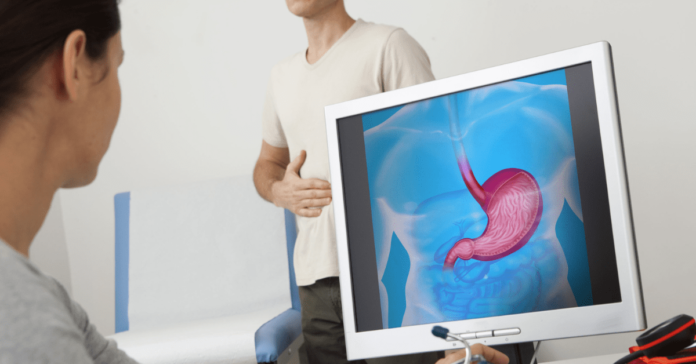Introduction
Rumination syndrome causes patients to accidentally regurgitate or bring up unprocessed or poorly digested food, chew it again, and then swallow or spit out the food. Since this food does not get metabolized, it’s supposed to taste natural and not acidic like vomit. Rumination happens after each meal, generally immediately.
What are the symptoms of rumination syndrome?
The symptoms of rumination syndrome may include some or all of the following:
- Regurgitation without effort, usually within 10 minutes after eating
- Regurgitation relieves abdominal discomfort or pressure
- A sense of fullness
- Peculiar oral odor
- Nausea
- Unintentional weight loss
What causes rumination syndrome?
The exact etiology of rumination syndrome is unknown. However, it appears to be due to an increase in abdominal pressure.
Rumination syndrome is often confused with bulimia nervosa, gastroparesis and gastroesophageal reflux disease (GERD)
Some individuals have rumination syndrome, which links to a rectal clearance disorder in which the pelvic floor muscles are out of sync, resulting in chronic constipation.
The disease occurs in newborns and adults with developmental impairments. It is now evident that it is not age-related because it can affect children, teenagers, and adults. Rumination syndrome is more prone to occur in those suffering from depression, anxiety or other psychiatric disorders.
When to see a doctor for rumination syndrome?
If you or your child persistently refuses to eat and regurgitates every meal, consult a specialist.
What are the risk factors associated with rumination syndrome?
The precise causes of the rumination problem are unknown. Some people experience this if they are have emotional difficulties or if they are going through a difficult time. Children and adults who experience a lot of stress may be more prone to rumination syndrome.
What are the possible complications of Rumination syndrome?
Rumination can damage the food pipe between your mouth and stomach if left untreated. It can also result in:
- Unintentional weight loss
- Malnourishment
- Disintegration of the teeth
- Bad breath
- Feeling ashamed
- Disconnection from society
How can you prevent rumination syndrome?
Rumination is a reflex, not a conscious action. It is a psychological disorder. It might get wrongly diagnosed as nausea or other digestive issues.
Behavioral therapy might assist you in recognizing and correcting the pattern. By acquiring more positive coping techniques for stressful situations, you may be able to lower your risk of rumination syndrome.
What treatments are available for rumination syndrome?
It may be helpful to limit your risk of rumination disorder by learning more specific adjusting techniques for distressing events.
To aid in controlling rumination, practice diaphragmatic breathing:
- Lay down on your back on a bed, twisting your legs and holding your head up. You can assist your legs by placing a cushion beneath your knees. One hand should be on your upper chest, and the other should be slightly beneath your rib cage. As you relax, you will be able to feel your stomach shift.
- Inhale slowly through your nose, allowing your stomach to slide out against your hand. Maintain as much stillness as possible with your hand on your chest. The hand on the stomach should go out with each slow inhale and in with expiration.
- Adjust your abdominal muscles so that they descend inside when you exhale through constricted lips. Maintain as much stillness as possible with your hand on your upper chest.
Conclusion
Habit reversal behaviour therapy is used for treating people having rumination syndrome without developmental disabilities. People learn to know when rumination occurs and to breathe in and out using abdominal muscles (diaphragmatic breathing) during those times.
Biofeedback is also a part of the behavioural therapy for rumination syndrome. During biofeedback, imaging may help you or your kid learn diaphragmatic breathing skills to counteract regurgitation.
Frequently Asked Questions (FAQs)
- How is the ruminating condition assessed?
Your doctor may ask your about your or your child’s current symptoms and medical history. An early examination, and sometimes observing behaviour, is often enough to diagnose rumination syndrome. Sometimes, impedance measurement and high-resolution esophageal manometryare used to confirm the diagnosis.
- What are some questions I should ask my primary care physician regarding rumination disorder?
If you have rumination disorder, you should ask your doctor the following questions:
- What is the source of this ailment?
- What kind of treatment is best for me?
- What is the most prevalent rumination disorder treatment?
Behavioral therapy is the most common treatment for rumination problems.
- How can you break the ruminating cycle?
Finding a fun pastime or diversion might help you stop the ruminating loop.


















